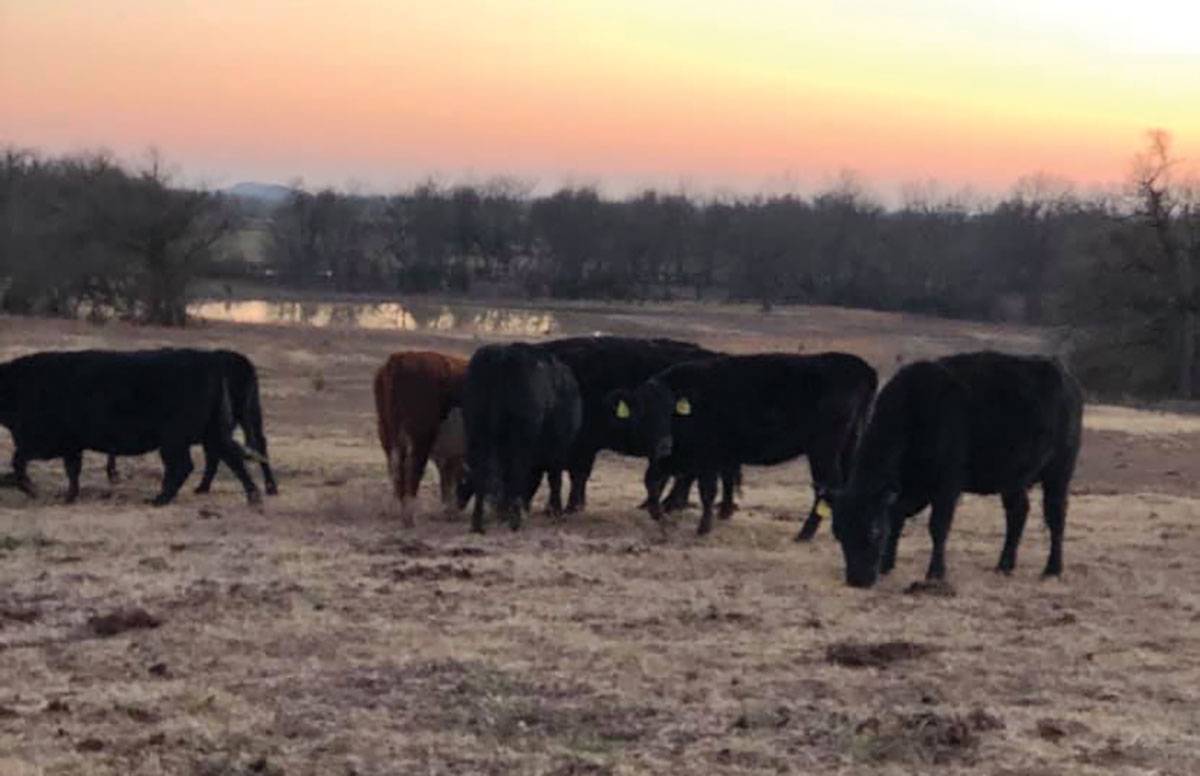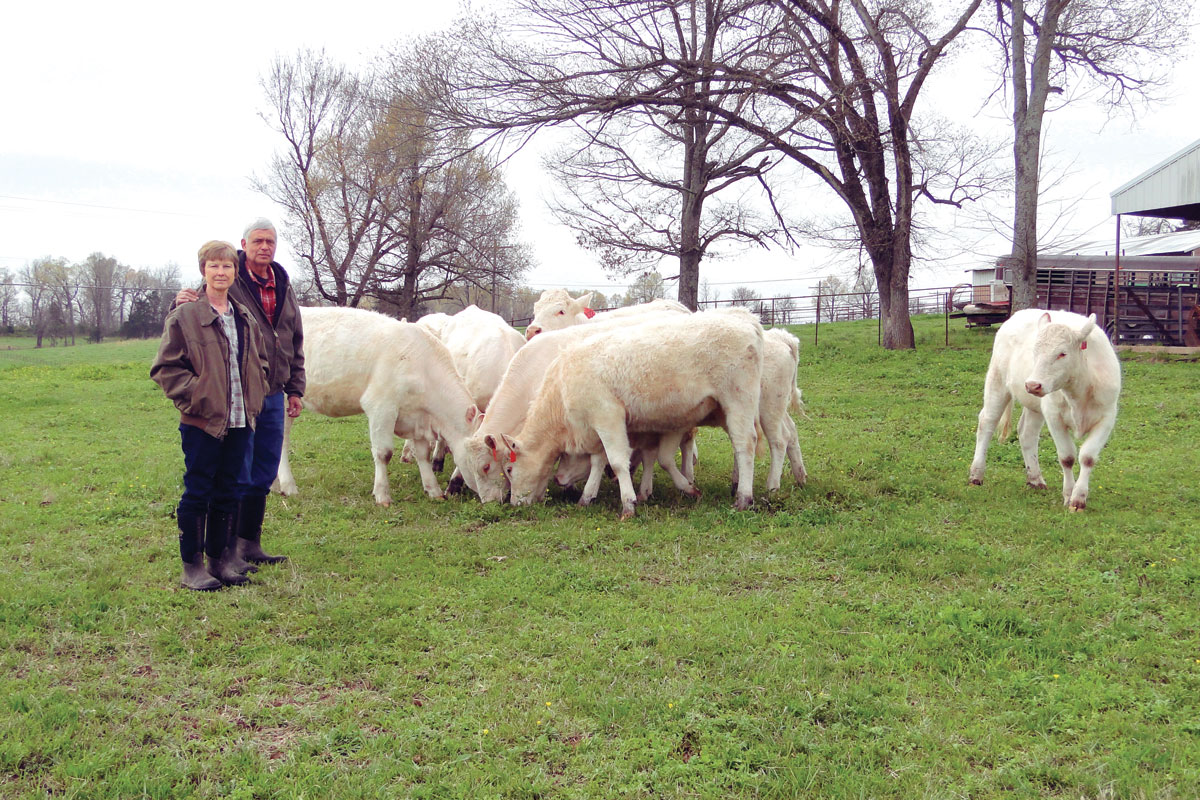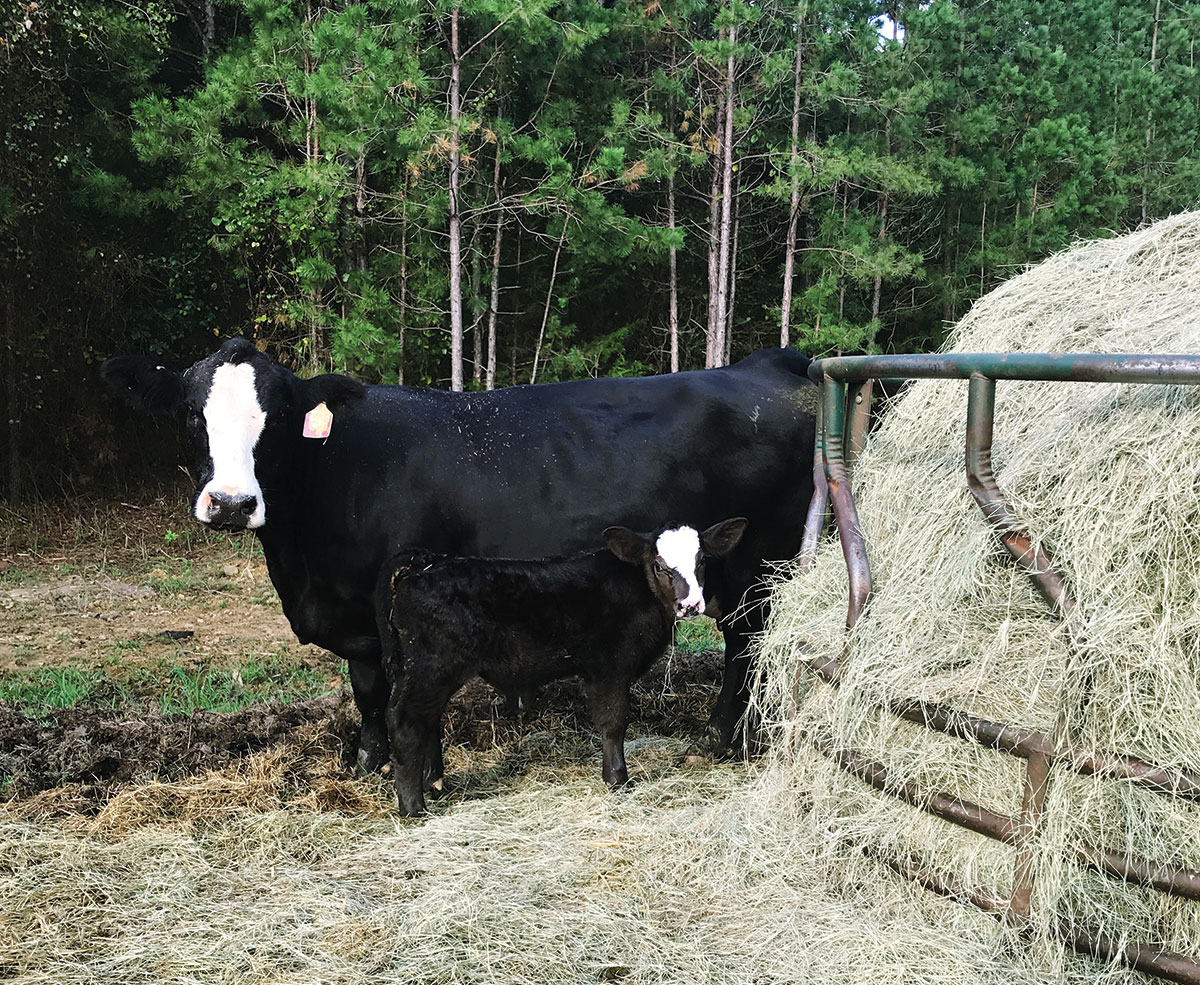The Wilson family utilize Angus and Akaushi genetics for their herd and beef program
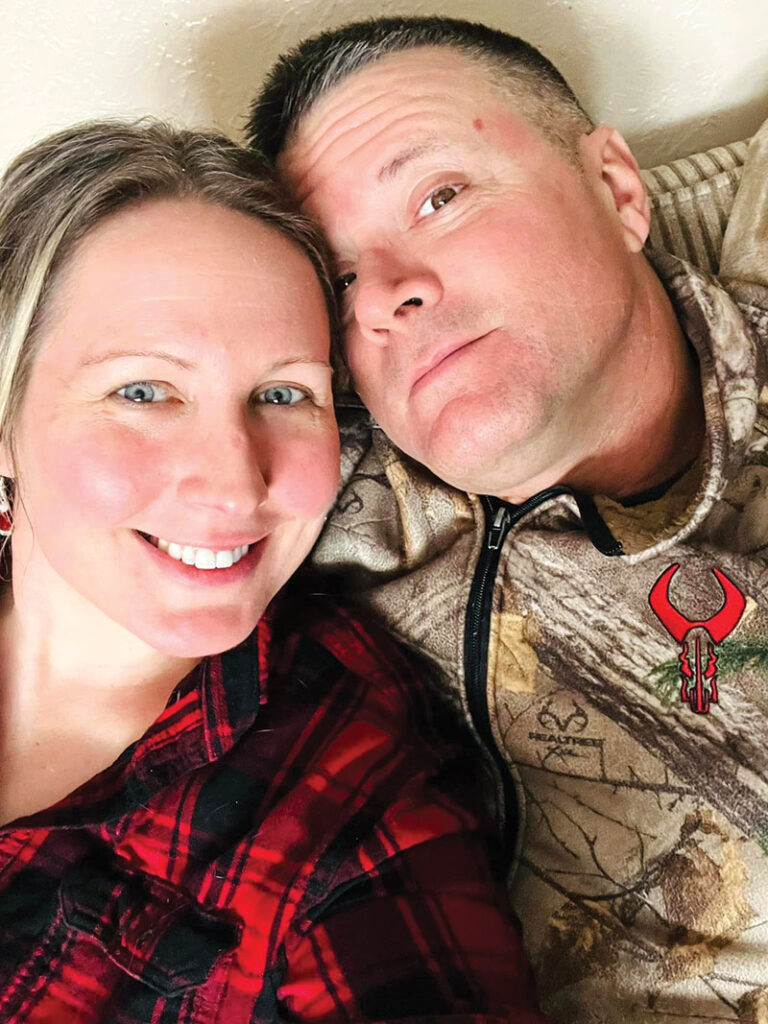
FAIRLAND, OKLA. – Carrying on a multi-generational tradition, Rick Wilson, along with his wife Serena, raise beef cattle at the Bar 51 Ranch near Fairland, Okla.
The farm began as a dairy farm in 1951, operated by Wilson’s grandfather Robert Paul (R.P.) Wilson. In the 1990s, R.P., along with his wife Elaine, began to move to raising Angus, bred with Senpol cattle. Additionally, Elaine worked as a science teacher at Picher High School until her retirement.
Since 2006, Rick and Serena and their daughters, Evelyn and Mary, have called the 170-acre ranch home. They moved to the farm after Serena completed six years of service to the U.S. Navy. The couple wanted to raise their daughters in Fairland.
“It’s a big deal not only to live in a house my grandfather and great-uncle built, but we get to live and raise our kids here,” Rick said. “It’s indescribable.”
Evelyn, who now attends Oklahoma State University, and Mary, a sophomore at Fairland High School, both participated in the USDA Youth Cattle Program and own their own small herds. Mary is a member of the Ottawa County 4-H.
In all, the family raises approximately 250 Angus cows and six Akaushi bulls, on 1,000 owned and leased land.
The mix of Angus and Akaushi, allows the couple to produce Wagyu beef. Rather than selling calves at auction, they sell at least 20 finished, fat cattle, mostly direct to consumers as locker beef.
Rick said the combination of Angus and Akaushi creates a highly marbled beef. Akaushi is known as the Emperor’s Breed in Japan.
“It provides a high quality, distinct eating experience for people who buy meat,” Rick said, adding cattle not sold directly off the farm are sold through the Akaushi breed, as a premium beef product.
Rick focuses his feeding program for the calves in the first 12 months of life using a high-forage diet. After that, he uses a feedlot ration for up to 230 days.
Part of their cattle could be considered grass-fed, but Rick prefers corn-fed beef for the final product.
Looking to the future, Rick hopes to increase the direct-to-consumer sales.
“People talk about supply chain issues, especially during COVID-19,” Rick said. “Now we’re doing something our grandparents did – getting their vegetables, meat and everything local.
“For me, everything is born on my place, fed here, processed and consumed within a 10-mile radius of the ranch.”
In terms of ranching, Rick said there’s nothing like the feeling a person gets as they raise and are for their own herd.
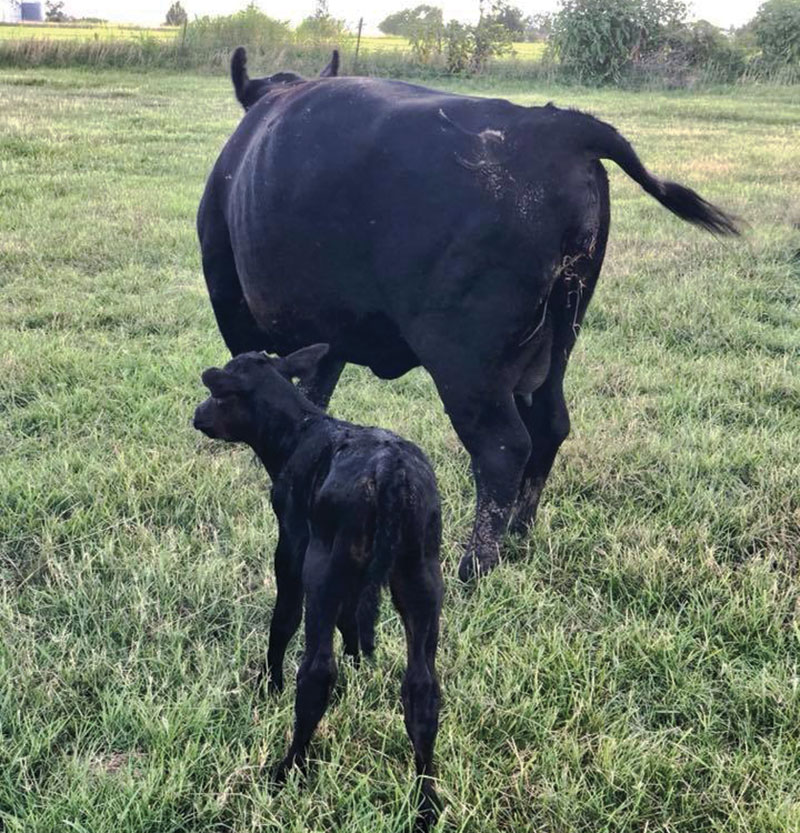
But the best part, he said with a laugh, is being able to take his dog, Arya, an Aussie Doodle, to work everyday.
Beyond cattle
In addition to raising cattle, Rick owned and operated his own roofing business for 15 years. He now sells crop insurance through AgLand Insurance in Fairland.
He became involved in it after becoming certified to sell pasture, range and forage insurance through the USDA.
Serena is a nurse practitioner at an urgent care facility in Miami. She also operates HotMesh Boutique, her creative arts business, out of the former dairy barn.
“Even as a generational ranch, there’s a lot of financial obligations still to meet,” Rick said. “Ranching is tough, because some days you ‘pay to play,’
“The cattle business doesn’t provide a paycheck. Everyday your paychecks are few and far between and sometimes you have to pay, to stay in business. Serena helps not only financially, but also morally. She also helps market the direct to consumer beef.”
Rick gets a bit choked up, as he describes selling insurance is a full-circle life event. He works for Jake Stunkard, the son of his former ag teacher, Mark Stunkard – someone who served as a mentor throughout high school.
He said living and working in Fairland, with his daughters attending the same high school he did, allows the family to have “generational friendships.”
“Mary often brings friends home, and all of our grandparents ran around locally together,” Rick said. “[Students] who worked for me in high school, now have grown kids coming of age and going to school with my kids.”

